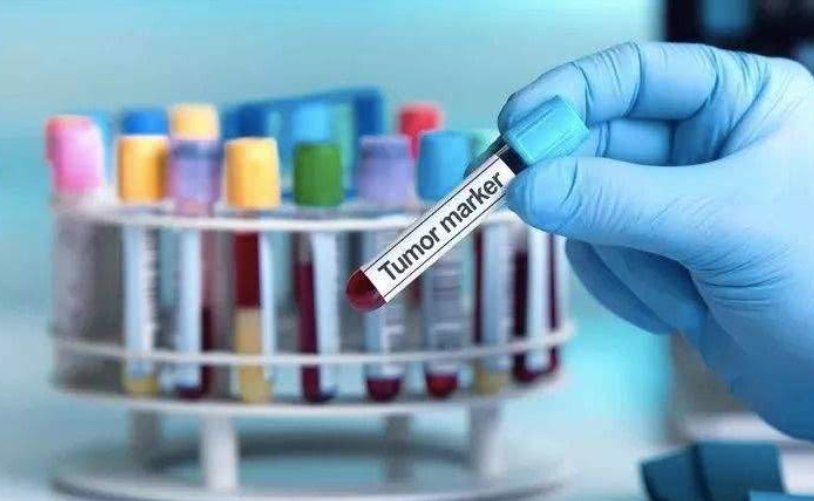“Cancer” is the most formidable “demon” in modern medicine. People are increasingly paying attention to cancer screening and prevention. “Tumor markers,” as a straightforward diagnostic tool, have become a focal point of attention. However, relying solely on elevated tumor markers can often lead to a misconception about the actual condition.
What Are Tumor Markers?
Simply put, tumor markers refer to various proteins, carbohydrates, enzymes, and hormones produced in the human body. Tumor markers can be used as screening tools for early detection of cancer. However, the clinical value of a single slightly elevated tumor marker result is relatively limited. In clinical practice, various conditions such as infections, inflammation, and pregnancy can cause an increase in tumor markers. Additionally, unhealthy lifestyle habits such as smoking, drinking alcohol, and staying up late can also lead to elevated tumor markers. Therefore, doctors typically pay more attention to the trend of tumor marker changes over a period of time rather than minor fluctuations in a single test result. However, if a specific tumor marker, such as CEA or AFP (specific tumor markers for lung and liver cancer), is significantly elevated, reaching several thousand or tens of thousands, it does warrant attention and further investigation.
The Significance of Tumor Markers in Cancer Early Screening
Tumor markers are not conclusive evidence for diagnosing cancer, but they still hold significant importance in cancer screening under specific circumstances. Some tumor markers are relatively sensitive, such as AFP (alpha-fetoprotein) for liver cancer. In clinical practice, abnormal elevation of AFP, along with imaging tests and a history of liver disease, can be used as evidence for diagnosing liver cancer. Similarly, other elevated tumor markers may indicate the presence of tumors in the individual being tested.
However, this does not imply that all cancer screenings should include tumor marker testing. We recommend tumor marker screening primarily for individuals at high risk:
- Individuals aged 40 and above with a heavy smoking history (smoking duration multiplied by cigarettes smoked per day > 400).
- Individuals aged 40 and above with alcohol abuse or liver diseases (such as hepatitis A, B, C, or cirrhosis).
- Individuals aged 40 and above with Helicobacter pylori infection in the stomach or chronic gastritis.
- Individuals aged 40 and above with a family history of cancer (more than one direct blood relative diagnosed with the same type of cancer).
The Role of Tumor Markers in Adjuvant Cancer Treatment
The proper utilization of changes in tumor markers is of significant importance for doctors to timely adjust their anticancer strategies and manage the overall treatment process. In fact, tumor marker test results vary for each patient. Some patients may have completely normal tumor markers, while others may have levels reaching tens or even hundreds of thousands. This means that we do not have standardized criteria to measure their changes. Therefore, understanding the unique tumor marker variations specific to each patient forms the basis for assessing the progression of the disease through tumor markers.
A reliable assessment system must possess two characteristics: “specificity” and ”sensitivity”:
Specificity: This refers to whether the changes in tumor markers align with the patient’s condition.
For example, if we find that the AFP (alpha-fetoprotein, a specific tumor marker for liver cancer) of a patient with liver cancer is above the normal range, their tumor marker exhibits “specificity.” Conversely, if the AFP of a lung cancer patient exceeds the normal range, or if a healthy individual has an elevated AFP, their AFP elevation does not exhibit specificity.
Sensitivity: This indicates whether the tumor markers of a patient change with the progression of the tumor.
For instance, during dynamic monitoring, if we observe that the CEA (carcinoembryonic antigen, a specific tumor marker for non-small cell lung cancer) of a lung cancer patient increases or decreases along with changes in tumor size, and follows the treatment trend, we can preliminarily determine the sensitivity of their tumor marker.
Once reliable tumor markers (with both specificity and sensitivity) are established, patients and doctors can make detailed assessments of the patient’s condition based on the specific changes in tumor markers. This approach holds significant value for doctors to develop precise treatment plans and tailor personalized therapies.
Patients can also use the dynamic changes in their tumor markers to assess the resistance of certain drugs and avoid disease progression due to drug resistance. However, it is important to note that using tumor markers to assess the patient’s condition is only a supplementary method for doctors in their fight against cancer and should not be considered a substitute for the gold standard of follow-up care—medical imaging examinations (including CT scans, MRI, PET-CT, etc.).
Common Tumor Markers: What Are They?
AFP (Alpha-fetoprotein):
Alpha-fetoprotein is a glycoprotein that is normally produced by embryonic stem cells. Elevated levels can indicate malignancies such as liver cancer.
CEA (Carcinoembryonic Antigen):
Elevated levels of carcinoembryonic antigen may indicate various cancer diseases, including colorectal cancer, pancreatic cancer, gastric cancer, and breast cancer.
CA 199 (Carbohydrate Antigen 199):
Elevated levels of carbohydrate antigen 199 are commonly seen in pancreatic cancer and other diseases such as gallbladder cancer, liver cancer, and colon cancer.
CA 125 (Cancer Antigen 125):
Cancer antigen 125 is primarily used as an auxiliary diagnostic tool for ovarian cancer and can also be found in breast cancer, pancreatic cancer, and gastric cancer.
TA 153 (Tumor Antigen 153):
Elevated levels of tumor antigen 153 are commonly seen in breast cancer and can also be found in ovarian cancer, pancreatic cancer, and liver cancer.
CA 50 (Cancer Antigen 50):
Cancer antigen 50 is a non-specific tumor marker primarily used as an auxiliary diagnostic tool for pancreatic cancer, colorectal cancer, gastric cancer, and other diseases.
CA 242 (Carbohydrate Antigen 242):
A positive result for carbohydrate antigen 242 is generally associated with digestive tract tumors.
β2-Microglobulin:
β2-microglobulin is mainly used to monitor renal tubular function and can increase in patients with renal failure, inflammation, or tumors.
Serum Ferritin:
Decreased levels of serum ferritin can be seen in conditions such as anemia, while increased levels can be seen in diseases like leukemia, liver disease, and malignant tumors.
NSE (Neuron-Specific Enolase):
Neuron-specific enolase is a protein mainly found in neurons and neuroendocrine cells. It is a sensitive tumor marker for small cell lung cancer.
hCG (Human Chorionic Gonadotropin):
Human chorionic gonadotropin is a hormone associated with pregnancy. Elevated levels can indicate pregnancy, as well as diseases like cervical cancer, ovarian cancer, and testicular tumors.
TNF (Tumor Necrosis Factor):
Tumor necrosis factor is involved in killing tumor cells, immune regulation, and inflammatory reactions. Increased levels may be associated with infectious or autoimmune diseases and can indicate a potential tumor risk.
Post time: Sep-01-2023



